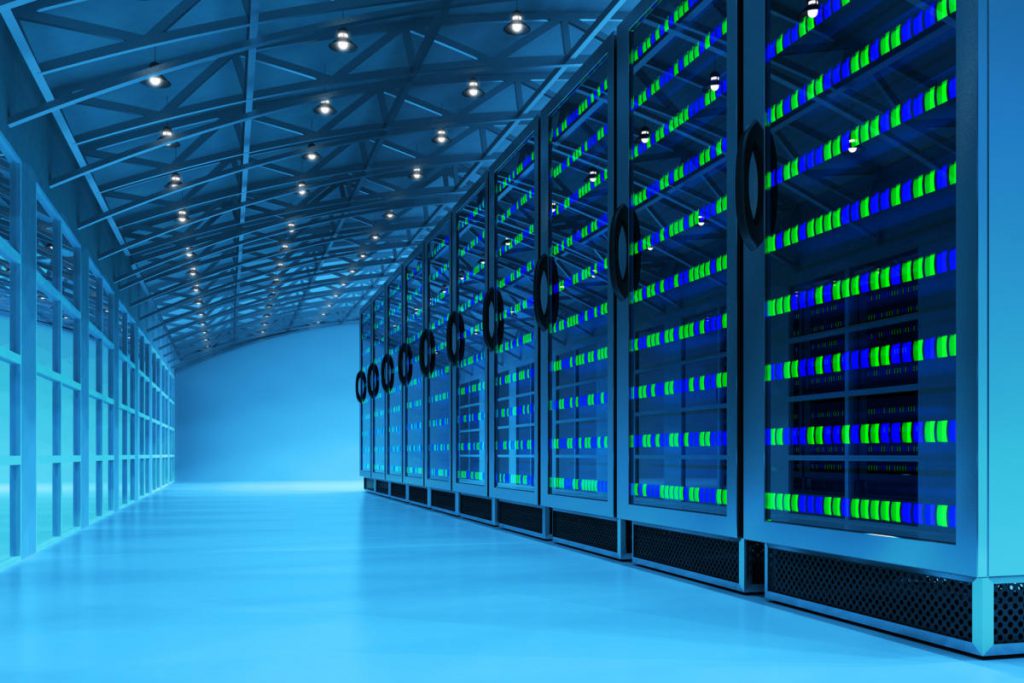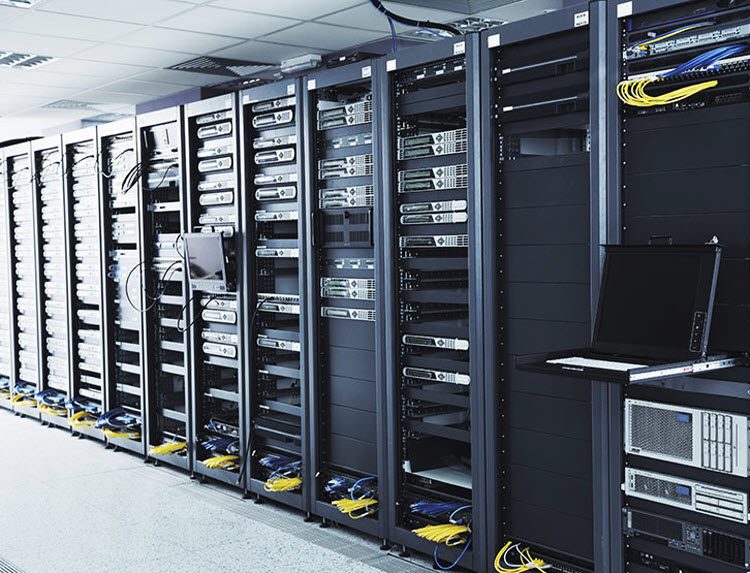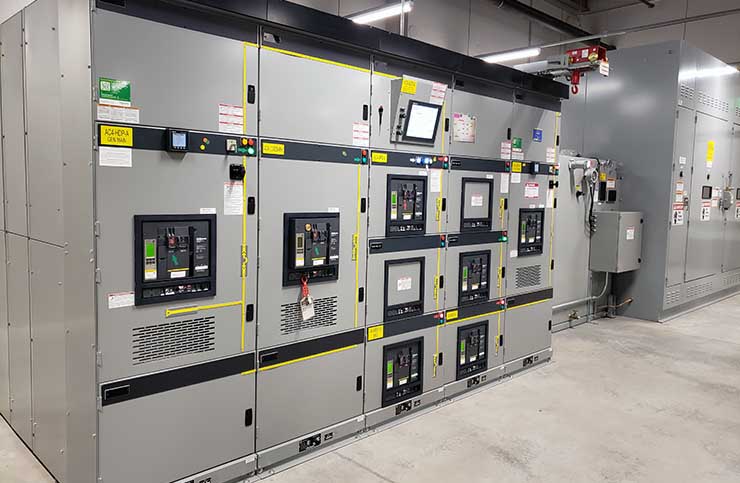Data Center
If you’re planning to build a new data center facility (or retrofit an existing structure for use as a data center), you should seriously consider hiring a data center consultant
Data Centre Solution Providers
If you’re planning to build a new data center facility (or retrofit an existing structure for use as a data center), you should seriously consider hiring a data center consultant. Like any important decision, however, you must prepare yourself to choose a good consultant by first studying your own company’s needs as well as the qualifications, skills and characteristics of a data center professional. The more your company relies on IT resources to function, the more critical is the success of your data center project. Professional assistance can quickly provide returns on your investment by saving you frustration, additional costs from errors and inefficient implementations, and even hazardous situations that can threaten equipment and personnel.
The first step in selecting a data center consultant is evaluating your company’s needs. The consultant can help you to some extent in this regard, but no one knows your company better than you do. The more information you gather and evaluate beforehand, the less you’ll have to pay your consultant for work that you could have done just as well. The second step is evaluating the candidates in light of your needs and their levels of expertise. And finally, of course, you need to make that final decision—perhaps the most difficult part of the process.
Know Your Company—The First Step
If you know precisely what your company needs, you will be in the best position to select a qualified consultant, help create a good design and produce a data center that will serve your company well for many years. Dr. Mickey Zandi, managing director at SunGard Availability Services, states, “A company should have a clear picture of the end state of its data center project before beginning the search for a consultant. The company should perform detailed inventory and asset tracking, as well as develop an interdependency matrix. This will help companies identify all their applications and the interrelations of the applications.” Einhorn notes that although an organization may rely on the consultant to do some of this discovery work, it must be at least somewhat prepared beforehand: “Many data center consultants are trained to help instigate these discussions to develop an integrated and strategic data center plan that aligns IT with business goals and objectives. However, the company should have a preliminary discussion to help outline the goals of the data center prior to searching for a consultant.”
What Should You Expect?
“To be most successful, a data center facility consultant must be able to provide end-to-end consulting throughout the data center program. An experienced data center facility consultant should oversee all elements of the data center lifecycle including design, construction and project management as well as be able to manage or partner with general contractors for the build element,” according to Einhorn. In other words, the data center consultant should provide more than just IT direction. In particular, Zandi notes that “a data center consultant should be able to address the key areas of power and cooling. Companies’ power consumption needs often change, and the consultant should be aware of how a power scheme can be shifted to make all options available. The consultant should also be able to provide advice on advanced cooling and in-row cooling options, because these will impact the architecture and layout of the data center.” Because power distribution, cooling, and IT infrastructure are so interdependent in the data center, your consultant should be able to address all these areas in a unified manner.
Beyond these fundamental expectations of a consultant, your project may require additional services. Einhorn notes a number of offerings that, either as a whole or piecemeal, can benefit a data center project: program management; review or development of a master plan; business case development; preparation for executive presentation; and data center commissioning, migration and transition to operations, to name a few. Of course, these services are supplemental to the more basic design and development services. When interviewing data center consultants, you may learn about these or other additional services that can benefit your project.
Data Center Consultants: A Checklist
The following are a number of considerations you should investigate when searching for a data center consultant. The weight you give to each of these factors will, of course, depend on your particular situation: your industry, intended use of your data center, budget, and so on. For most companies, however, each of these factors should have some bearing on their choices.
Experience—This should be the most important factor in your choice. An experienced data center consultancy will know many helpful strategies to save you time, trouble and money, and it will also be aware of the many pitfalls that can ensnare your project and lead to schedule lapses, unforeseen expenses, and down time later on. “There is no substitute for experience. Companies should consider vendors’ past experience, and ask for references for equivalent projects where they have successfully guided other clients through similar efforts,” said Einhorn.
Expertise—“When selecting a consultant, it is important to know their area of expertise; an example of expertise can be data center design and architecture. A company can validate the consultant’s expertise and history through their references, methodology, and number of competencies the team is engaged in,” notes Zandi. Your data center will not be the same as another company’s data center, nor should it be the same. Depending on your industry, budget and other requirements, you will likely want to focus on certain aspects of your facility more than others. So, take careful note of what prospective consultants are best at; a consultancy whose expertise overlaps your focus areas may be an excellent candidate.
Certifications/Licenses—Some of the work in your data center will at a minimum require oversight by licensed professionals. According to Einhorn, “For the facility design in most countries, a licensed professional engineer is required to stamp drawings. It is also recommended that a third-party consultant do a peer review on any design, given the criticality of these projects.” Zandi also notes that “it is important for the structure of the data center facility to have certified engineers on staff for power and cooling as well as a mechanical engineer.” Certifications and licenses can be beneficial both in showing that the consultant has achieved a certain level of expertise and professionalism as judged by an outside party, and in providing you with some protection in the event that an accident or other incident occurs later on in your data center’s life. Although licenses and certifications are not fool-proof means of judging a professional (of any sort), they do offer you some benefits in your search.
Codes—Like it or not, the local government in your new data center’s locality will be sticking its nose in your business. Building codes can be complex and difficult to understand, and even if you do understand them, your building inspector may say something entirely different. Your consultant, therefore, should be able to deal with both the code in the particular locality and the inspectors that will be judging the facility. Zandi states that “a company should be knowledgeable about the region and its code requirements; this will allow for selecting a consultant who can survey and assist with the codes.” In other words, part of the responsibility is yours to know a little about the code and the region you’ll be building in so that you can choose a consultant that is competent in this matter.
Budget—The price tag of a product or service is always a consideration (and especially so in difficult economic times). Part of any decision is balancing a number of considerations, and seldom is any option ideal in all respects. Unfortunately, the best data center consultant may be out of reach simply because that service provider is too expensive. But when beginning the process of searching for a consultant, you should have some idea of what you can afford (such as a percentage of your total project budget) to pay for the consultant’s fees.
Needless to say, the cost you should expect to pay is difficult to estimate for a generic data center, but some range can be pinned down. Your project may deviate from any estimate depending on the details of the implementation, of course. Einhorn says, “While pricing may vary according to location and implementation, typically the costs for data center consultants (strategists and planners, construction managers, architects, mechanical, electrical, civil, landscape, and acoustical engineers) can total about 10–15% of the overall ‘soft’ costs of a project. As data centers are complex facilities from a mechanical and electrical (power and cooling) perspective, the mechanical and electrical engineering consulting effort can be approximately 4–7% of that total.” Other services that are increasingly employed by companies when designing and building their data centers may add another one or two percent to the project cost.
Zandi notes the likely range for a consultant as a percentage of the project price tag: “The cost of hiring a data center consultant depends on the depth and detail of the overall project. If a consultant is brought on for discovery and design and will manage the project’s implementation, the cost could be up to 25 percent of the project as a whole. If a consultant is only on board for design review or peer review, it may only be 10 percent of the overall project cost.” Here, knowing what you need for your project will greatly assist you in determining what you should expect to pay for a consultant and how that will fit into your budget.
Professionalism—Participation in professional organizations and publication of documents may also indicate a good candidate. “It is also very important to do research on consultants by seeking out white papers and journal articles written by the individuals or organizations, as well as examples of their leadership in developing industry standards such as the American Society of Heating, Refrigerating and Air Conditioning Engineers (ASHRAE) chapters, the European Union Code of Conduct for Data Centers and LEED standards for data centers.”
Of course, each of these six areas may encompass a variety of sub-areas that you need to consider. For example, you may want to implement a data center with very low impact on the environment: in such a case, you want a consultant that focuses on green issues and is aware of the technologies and strategies that will help you realize this goal. This consideration would fall under the rubric of expertise. Within each category, you should develop your own list of items that are important to your company’s project. Discuss them with candidates; those that are able to address your concerns will be better candidates.
Ultimately, however, you will need to make that final decision. By applying the considerations above, that decision should be a choice between just a few good candidates rather than a random drawing from a giant pool of unknowns.
Conclusions
Einhorn summarizes a general philosophy for seeking a good consultant: “The ideal data center consultant (or team of consultants) will truly understand how to plan, design and implement IT and/or data center programs typically led by a very senior executive consultant and supported by other consultants who are experts within the strategy, operations, risk, technology and facilities disciplines.” Data center projects are complex and expensive, and your business cannot afford to do it wrong. Hiring a data center consultant at somewhere between 10% and 25% of your total project cost may seem too expensive, but the risks and costs of not doing so can quickly eclipse this amount. You need a data center consultant; your best bet, then, is to take the time to prepare by evaluating your company’s requirements and then interview prospective candidates in light of the above considerations. If you know what you need and what services prospective consultants can provide, you will be able to select the one that is best for your company’s data center project.


Power & Cooling
KEEPING YOUR OPERATIONS OPERATIONAL.
As your increasingly consolidated data center runs hotter, you have to balance performance with higher cooling costs and potential downtime. At Adorit, we can build a solution that fits your infrastructure and delivers the resiliency you need.
MEETING SHIFTING DATA CENTER NEEDS
As you converge your infrastructure, its power and cooling needs change dramatically. With a dense, highly utilized environment, you’ll see a larger power draw and increased heat output. To minimize the risk of downtime and protect your systems in the event of a disruption, you need a solution that accounts for these demands by:.
Keeping Power Infrastructure Stable
Power being drawn by your equipment needs to be stable and free from surges. Plus, it must be distributed efficiently so no equipment is strained. Unstable and unprotected power distribution can create slowed server response and, worse, irreversible damage.
Maintaining Proper Cooling
You need to provide enough cooling to your servers to maintain performance levels while trying to keep cooling costs low. Failure to properly cool your servers can cause them to overheat and crash, resulting in devastating downtime.
Visibility
Data regarding resource usage, operational status and overall infrastructure health needs to be readily accessible and understandable. Without this information, you may not know that your data center power flows or cooling levels need to be adjusted until it is too late.
REALIZING RESILIENCY WITH PROPER POWER AND COOLING
To keep your data center running and avoid the hassle and expense of downtime, you need a power and cooling plan that meets your data center’s demands. The right approach can protect both your infrastructure and your organization’s productivity in the event of an equipment failure, power outage or other disruption. At Adorit, we offer validated designs to address the power and cooling needs of leading converged infrastructure solutions. Your power and cooling solution could include:
Comprehensive Power Solutions
An adaptable power protection and control system can include:
Uninterruptible power supplies (UPSs) allow you to right size your power flow and adjust it as your needs change. They also serve as temporary battery backup in case of outage.
Modular power distribution units (PDUs) simplify configuration and support rapid power distribution network expansion.
Intelligent power distribution units combine power distribution with remote monitoring to quickly alert you to any irregularities in power, humidity or temperature.
Flexible and Powerful Cooling Resources
Your cooling infrastructure should be flexible enough to handle the increasing power and rack density of your current consolidated data center, as well as be scalable for the future.
Smart Management Software
Having easy access to clear information regarding resource usage, operational status and the overall health of your data center is critical. With the right software, you can strike the perfect balance between data center availability and efficiency
Harnessing Effeciencies & Avoiding Downtimes
With a comprehensive power and cooling solution, your organization will enjoy many benefits, such as:
Increased Resiliency
Power and cooling technologies can help you identify potential disruptions, prevent damaging downtime and keep your data center up and running even if disaster strikes.
Reduced Costs
A plan that maximizes the efficiency of your resource usage can help you reduce the sizable costs of powering and cooling your data center.
Improved Visibility and Utilization
The management systems deployed as part of the solution can provide insights into operational efficiencies that go beyond power and cooling. You may uncover a need for more dynamic data center equipment or design a better power distribution plan based on usage patterns.
Maximized Infrastructure Flexibility
Th e modular nature of a well-designed power and cooling solution will facilitate future scalability as your organization grows.


Business Continuity
Adorit’s Business continuity services identifies the dependencies and ensure that the business keeps operating irrespective of the situation. Through our expert services, we offer up time for both Cloud based solutions and physical set-ups. We help in keeping the critical data safe, protected and available. Our disaster recovery services include storage technology options to enable business recover the frequently used primary data immediately along with replication option.
Consolidation
Every organisation aims at enhancing speed and agility while minimising risk of losing the data centre assets. A consolidation system that leverages advanced cloud and virtualisation technology to prevent underperformance and incremental costs of maintaining the data centre assets is a necessity. In consultation with the organisation and assessing their hosted IT setup, server and storage virtualization, etc., we at Adorit offer a consolidated system to reduce costing, enhance server efficiency, and reduce operational cost thereby, increasing the overall efficiency.
Work With Us
Now that you have seen what we do, start your discussion with our team of experts today, and kick start your project at the speed of light.
